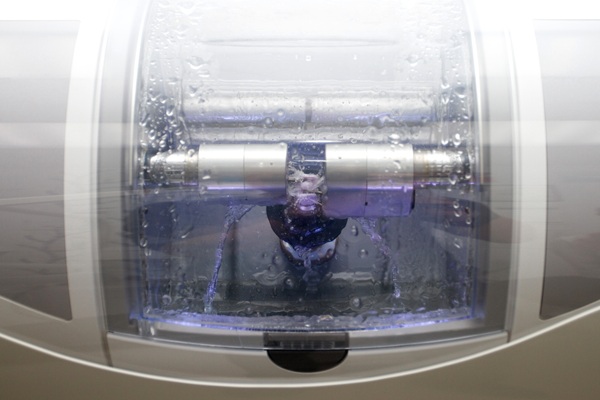 For some people, the idea of getting dentures can be a scary prospect. If you are in this situation, it may mean that you have lost most or all of your teeth. This could have happened because they were severely decayed or many of them were damaged in a serious accident. Regardless of why you are getting these artificial teeth, it is helpful to know what to expect with using them. While they can be challenging to wear at first, this apparatus can restore the full function of your mouth.
For some people, the idea of getting dentures can be a scary prospect. If you are in this situation, it may mean that you have lost most or all of your teeth. This could have happened because they were severely decayed or many of them were damaged in a serious accident. Regardless of why you are getting these artificial teeth, it is helpful to know what to expect with using them. While they can be challenging to wear at first, this apparatus can restore the full function of your mouth.
An overview of dentures
Dentures come in both full and partial forms, depending on a patient’s needs. Full dentures replace either all the upper or lower teeth or all the teeth in the mouth. With partial dentures, the wearer retains some usable natural teeth along with the artificial ones provided by the appliance. Removable dentures consist of a gum-colored acrylic base and artificial teeth that are usually made of metal covered in plastic. They are natural-looking and can withstand chewing most foods. This apparatus also helps the person to speak more clearly and revives the individual’s smile.
The process of receiving dentures
Before getting the prosthesis, the dentist will discuss other possible options with the patient. If the person has lost all of their teeth, this treatment may be the right choice, although the patient could consider dental implants. An alternative to partial dentures could be a dental bridge.
During the first step in preparing a person for dentures, the dentist takes X-rays and makes impressions of the patient’s mouth. The dentist may also need to extract any remaining, unsalvageable natural teeth.
Challenges of wearing them
The base will rest directly on the gums. Some people may get sores on their gums since the dentures can irritate the mouth. The artificial teeth can also slip out of the mouth when the wearer is speaking, laughing, or eating. For the first few weeks, this apparatus may cause some discomfort or sensitivity in the gums.
Getting accustomed to the artificial teeth
Eventually, the dentures should feel natural. Patients may not even notice the apparatus is in their mouth after three or four weeks of wear. To help ease the adjustment, it is good to start by eating softer foods such as yogurt, scrambled eggs, or mashed potatoes. Taking smaller bites helps the dentures stay in the mouth and assists the person to chew properly. Using the back teeth to bite is also a wise strategy.
People who wear dentures should learn to take good care of them. Daily brushing and rinsing are vital. Patients should soak them in a solution every night and be cautious when removing the apparatus and setting it aside.
Check out what others are saying about our dental services on Yelp: Dentures and Partial Dentures in Fort Worth, TX.
Continue your regular lifestyle
Wearing dentures will require some adjustments. However, this change does not have to alter the way you do things every day. These artificial teeth generally allow wearers to eat just about anything they want. On the plus side, you can resume social activities without feeling embarrassed about your smile and appearance. If you are having trouble getting used to the way the dentures feel, be sure to contact your dentist.
Request an appointment or call Riverside Dental at 817-210-4082 for an appointment in our Fort Worth office.
Recent Posts
Dentures help some people regain their smiles without surgery. Breaking them in is important. It is the period of making your prosthesis a part of your life. Learning how to wear your dental prosthesis is important. If you want to find out how to maintain a secure and comfortable attachment for your dentures, here are…
Dentures are not exclusive to senior citizens. Many unavoidable circumstances could lead to tooth loss. This is when a quick teeth replacement system must come in. If you want to find out when you should get dentures, here are the details.Tooth loss results in gaps between teeth. The empty spaces prompt the neighboring teeth to…
If you have a damaged tooth due to a dental emergency, you would probably need same day crowns to restore your smile as soon as possible. Leaving a damaged tooth unprotected can make you vulnerable to infections that will affect not only your oral health, but also your general wellbeing. In this article, you will…


